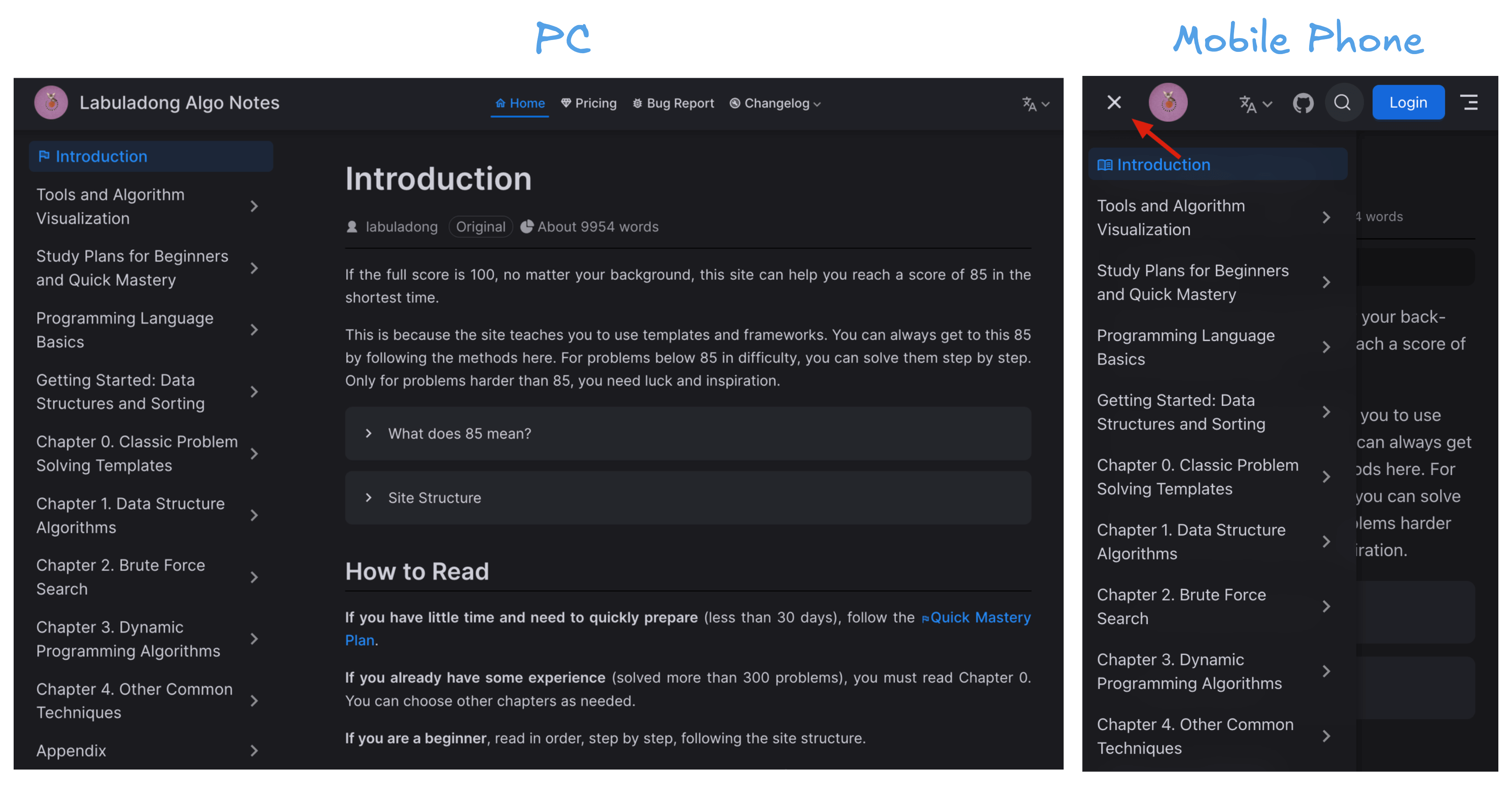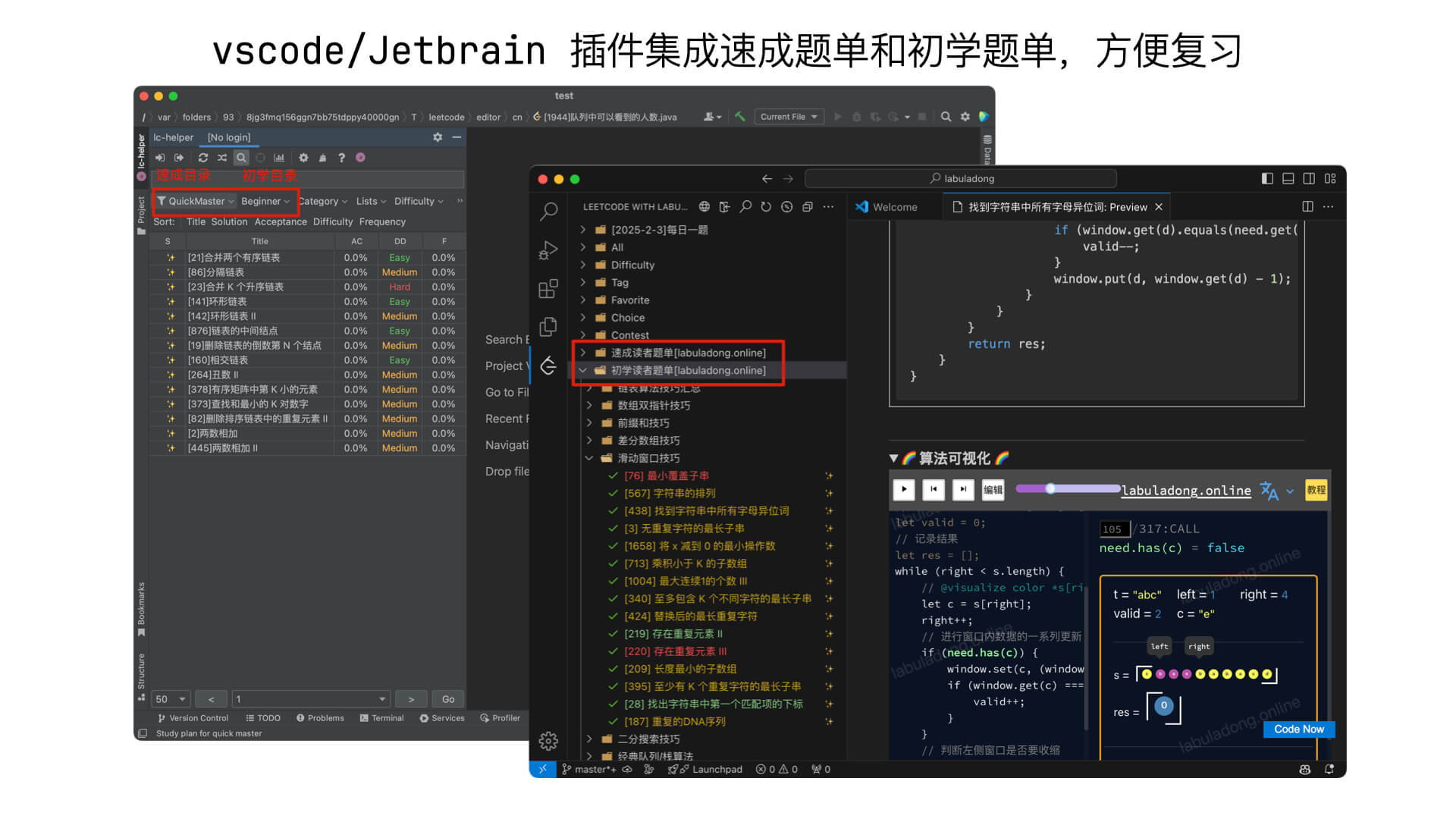Learning Plan for Beginners
Who Are "Algorithm Beginners"?
Practicing algorithms is a skill that needs special training. It is not directly related to your project or work experience. So, we judge if you are a beginner by your experience in solving algorithm problems.
If you just started learning programming, you are an algorithm beginner. If you have a lot of development experience but never solved algorithm problems before, you are also an algorithm beginner.
If you are a beginner and have enough time, just follow the Main Menu and learn in order. You will master all tips for data structures and solving algorithm problems.
Each chapter has a guide at the beginning. It explains how different readers should read this section. Please read it carefully.

Beginner Problem List
The VSCode plugin and Jetbrains plugin have the problem list mentioned in this menu. This is helpful for your revision:

How to Use the Problem List
It is not recommended to start practicing from the problem list directly. The main use of the list is for revision. I suggest you learn the website articles first, and then use the problem list to check your learning results.
More Than Just Solving Problems
I think algorithms are great, especially for beginners. It is easy to get positive feedback: whenever you master an algorithm pattern, you can solve many problems quickly. This gives a strong sense of success.
For students who have not yet graduated, I highly suggest getting a solid foundation in data structures and algorithms. Once your thinking in algorithms is formed, it will not fade. This will save you a lot of trouble when you work in the future, and you will not need to spend extra time preparing algorithms when changing jobs.
After starting work, it is hard to find large blocks of time for learning and thinking. So, for readers who are already working, there is another set of Quick Mastery solutions.
Actually, besides practicing problems, you can think more about the algorithms you have learned. Can you use this way of thinking to solve real-life problems? Can you turn some real-life situations into algorithm problems? If you face a real problem, can you use algorithm thinking and programming to solve it?
Readers who like my tutorials must like thinking. Otherwise, you would not have the patience to read my long algorithm tutorials. But in the end, thinking needs to be put into practice.
Now you may feel happy to solve a few algorithm problems, but after you fully master all the thinking on this site, you will find that algorithm problems are very simple. The small sense of achievement from solving problems will not be enough.
So, I hope during your learning process, you can build the habit of thinking and taking action. In the end, you will apply these abilities to a wider range of areas. Stay curious about new things and always keep moving forward.